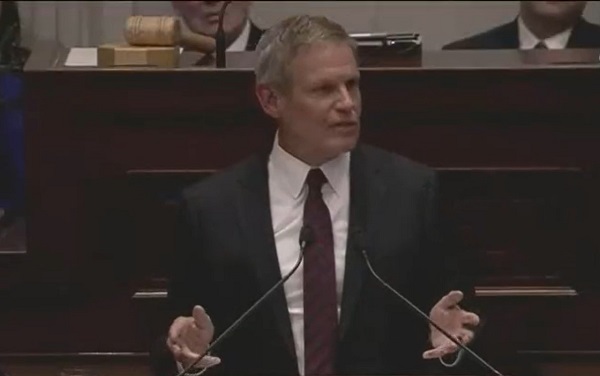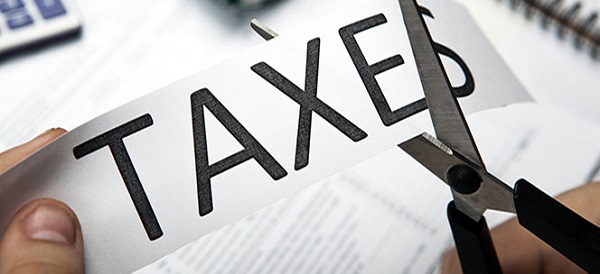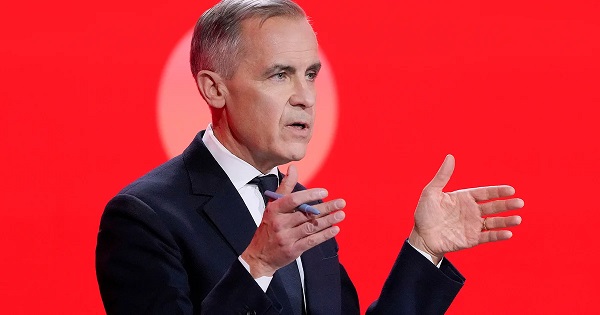ESG
Tennessee Taking Lead In Protecting Civil Rights And Free Enterprise—And Stopping Political Debanking

Tennessee Gov. Bill Lee
From the Daily Caller News Foundation
By ERIC BLEDSOE
Last week, Tennessee Gov. Bill Lee (R.) signed into law a first-of-its-kind ban on politicized debanking. Sponsored by Rep. Jason Zachary (R.) and Senate Majority Leader Jack Johnson (R.), HB 2100 will prohibit the nation’s largest banks from discriminating against individuals, businesses, and non-profits for their political and religious views.
The new law is a landmark reform to stop large banks from imposing political litmus tests on Americans.
This legislation (HB 2100) is, of course, a reaction to the trend of the largest financial institutions creating partisan barriers to Americans’ access to financial services. Last year, Bank of America closed the deposit and credit card accounts of Memphis-based non-profit Indigenous Advance Ministries. The organization works with Ugandan widows and orphans to provide for their basic needs through Christian charity. Bank of America refused to give Indigenous Advance a reason why they closed the accounts—just that they no longer wanted to work with their “business type.”
Indigenous Advance’s experience is like what the National Committee for Religious Freedom (NCRF) faced when JPMorgan Chase closed their accounts. NCRF promotes religious liberty for Americans of all religious faiths. Chase said it would restore NCRF’s accounts if it disclosed a list of its donors, told the bank which political candidates it intended to support, and sent them the criteria NCRF uses to decide who they want to support politically. NCRF, out of respect for their donors’ right to privacy, declined.
John Eastman, past attorney for former President Donald Trump, was debanked twice at the end of last year by Bank of America and USAA. Again, the banks provided little to no explanation for the sudden closures. Eastman told the Daily Caller that the banks said it was their policy to not provide any further information. Banks stonewalling their customers on why they close their accounts is alarmingly becoming a pattern.
In December 2022, Wells Fargo abruptly closed the personal and business accounts of Brandon Wexler, a Florida-based gun dealer. The bank’s only explanation was a brief mention that it was due to their review of account risk. Wexler had a personal account with Wells Fargo for 25 years and a business account for 14 years. One instance of an account closing might not be worthy of attention, but more and more examples like these are becoming more common. And the only common thread, besides banks refusing to explain their actions, is that the targets of debanking hold political and religious views unpopular on Wall Street and Pennsylvania Avenue. This does not appear to be a policy at one bank, but an unspoken policy across the industry. Commenting on Wells Fargo’s action against him, Wexler said, “I’ve been with them for 25 years,” […] “I’m a professional fireman. I do everything the right way. It’s messed up.”
But large banks debanking individuals and non-profits is not the full extent of politically motivated financial service providers’ discrimination. In September, Tennessee Attorney General Jonathan Skrmetti sent a letter sent a letter to financial service providers who are signatories to the Net Zero Financial Service Providers Alliance (NZFSPA) warning them that their environmental, social, and governance (ESG) strategies may be in violation of antitrust and consumer protection laws. Both state and federal laws prohibit coordinated or collaborative efforts between corporations to restrict trade or commerce. All members of NZFSPA agree to “(a)lign all relevant services and products to achieve net zero greenhouse gas emissions by 2050 or sooner, scaling and mainstreaming Paris Agreement-alignment into the core of our business.” Though the 27 members of NZFSPA are supposed competitors in the financial services market, their joint commitment to restrict sectors of the economy like fossil fuel is clearly a coordinated effort.
Large financial institutions’ boycott of fossil fuel and discriminatory actions against individuals and non-profits for their religious or political views may seem disconnected at first. But those following the ESG movement won’t be surprised to see these politically motivated efforts across multiple sectors. Last month, Montana Attorney General Austin Knudsen sounded the alarm over these radical policies to Wells Fargo CEO Charles Scharf with the support of 15 other state attorneys general. A member of the Net Zero Banking Alliance (NZBA), Wells Fargo has committed, alongside 143 other banks, to implement ESG policies. In the letter, the attorneys general noted that Wells Fargo has a record of debanking Republican candidates and the firearms industry, imposing race- and gender-based quotas on credit customers, and publicly committing to implement radical climate standards on the energy industry.
Leftist activists realize they cannot accomplish such a radical agenda of eroding individual rights and a free economy through the ballot box. ESG is a political tool that enables the far left to bypass the democratic process to will their worldview onto Americans’ lives. In response, policymakers and other stakeholders must strengthen and enforce civil liberties protections, consumer rights, and antitrust laws, so that political activists cease willing their agenda on citizens.
Fortunately, states like Tennessee are taking the lead in protecting civil rights and free enterprise.
Eric Bledsoe is a Senior Policy Fellow at the Foundation for Government Accountability.
The views and opinions expressed in this commentary are those of the author and do not reflect the official position of the Daily Caller News Foundation.
Brownstone Institute
Counting Coup: The Great Comeuppance For The Deep State

From the Brownstone Institute
By
It is, yet again, fashionable amongst the dwindling tribe of progressives to yell loudly that what is happening now in DC is a coup.
Donald Trump (and his Muskian minions) are running roughshod over the government, destroying norms and constitutional precedents and being very rude about it in the process.
Despite being elected on a platform of doing exactly that only a few months ago, the deep and/or woke state (before woke became a cool and easy way to grift graft billions, the deep state didn’t really care about things like trans whale rights, by the way) and its well-credentialed but poorly educated horde of government job dependent supporters are crying – literally – foul.
Elon Musk is unelected. You have no right. This is not a dictatorship. How dare you change anything that has worked so well for us for decades? At least slow it down. (Note – if you really thought you were being murdered you would yell “Stop!,” not “Slow down,” so maybe even progwokes get it, at least at a subconscious level.)
This is a coup, they yell.
Well, no it’s not. The nation – eyes wide open – elected Trump to do exactly what he is doing right now, whirlwinding through federal agencies to end the generational oligarchical scam.
Note – Joe Biden theoretically was elected to bring normalcy and decency to DC only to see his administration become a corrupt cavalcade of lies. In fact, unlike Trump, Biden did exactly the opposite of what he said (or mumbled or read) during the campaign that he was going to do as president.
If a coup involves false pretense, then look no further than Delaware.
Obviously, all actual coups involve change, but not all change is by definition a coup.
The concepts are not transitive.
And everything that has been done so far is well within the purview of the president – in theory, Joe Biden could have done everything Trump is doing now, if his handlers had let him or if it had ever occurred to him to do so.
What is happening is not a coup – it’s basic reform. It’s trying to sort out the absurdities of government spending and programs and to shut down the most egregious; case in point the USAID.
Vast billions slushed through the agency (one hopes the ludicrously named, cartoonishly-villainous National Endowment for Democracy is next) under the cover of political correctness and/or expediency on its way around the globe, most of which ended up in odd pockets of strongmen and politicians and “civil society” power-base builders who would then turn around and support the agency and its many many QUANGOs and foundations and such.
The money was not about helping actual real people – it was about creating an international network that could be called upon to do the bidding of the American intelligence community and the globalist socialist socialite statists, now one and the same. When you pay people they will pay you back, however they can, from writing op-eds to going on MSNBC to railing against populism – whatever you need at the moment.
That being said, there is one possible interpretation of the idea of a coup that could have more than an element of truth to it – counting coup.
Counting coup was a Plains Indian warrior tradition in that you didn’t necessarily have to kill your opponent in a battle but merely touch them – essentially bonk them on the head – and get away unscathed. That humiliated your opponent and counted – more than counted – as a moral victory (in fact, amongst the Crow – at least – it was one of four tasks that had to be completed in order to become a war chief.)
It was bravery personified.
And it can be said that Trump, Musk, and his hyper-caffeinated hackers are doing that with every move they make – counting coup.
Millions for gender-diverse Serbians?
Bonk on the head.
Paying global media types to twist the truth to benefit the interests of the deep state, including pushing to prolong the war in Ukraine and even possibly support the impeachment of Trump?
Bonk on the head.
Trying to help overthrow foreign governments?
Bonk on the head.
Government DEI programs?
Bonk on the head.
Paying for the BBC, climate change silliness, and Iraqi puppet shows?
Bonk, bonk, bonk on the head.
Not only is this not an actual coup, this is not even revenge or retribution but long and desperately needed reform.
And while counting coup was a way to humiliate an opponent it is not clear if that is the current intent, though one can be sure there is more than a little snickering glee amongst those involved in the process.
What is happening now is the tearing down – from the inside – of the ossified calcified oppressive state that has built up over the last 40 years.
The deep state is finally getting its much-deserved comeuppance and it may be happening just in time.
Bonk.
Author
Business
PepsiCo joins growing list of companies tweaking DEI policies

 MxM News
MxM News
Quick Hit:
PepsiCo is the latest major U.S. company to adjust its diversity, equity, and inclusion (DEI) policies as 47th President Donald Trump continues his campaign to end DEI practices across the federal government and private sector. The company is shifting away from workforce representation goals and repurposing its DEI leadership, signaling a broader trend among American corporations.
Key Details:
-
PepsiCo will end DEI workforce representation goals and transition its chief DEI officer to focus on associate engagement and leadership development.
-
The company is introducing a new “Inclusion for Growth” strategy as its five-year DEI plan concludes.
-
PepsiCo joins other corporations, including Target and Alphabet-owned Google, in reconsidering DEI policies following Trump’s call to end “illegal DEI discrimination and preferences.”
Diving Deeper:
PepsiCo has announced significant changes to its DEI initiatives, aligning with a growing movement among U.S. companies to revisit diversity policies amid political pressure. According to an internal memo, the snacks and beverages giant will no longer pursue DEI workforce representation goals. Instead, its chief DEI officer will transition to a broader role that focuses on associate engagement and leadership development. This shift is part of PepsiCo’s new “Inclusion for Growth” strategy, set to replace its expiring five-year DEI plan.
The company’s decision to reevaluate its DEI policies comes as President Donald Trump continues his push against DEI practices, urging private companies to eliminate what he calls “illegal DEI discrimination and preferences.” Trump has also directed federal agencies to terminate DEI programs and has warned that academic institutions could face federal funding cuts if they continue with such policies.
PepsiCo is not alone in its reassessment. Other major corporations, including Target and Google, have also modified or are considering changes to their DEI programs. This trend reflects a broader corporate response to the evolving political landscape surrounding DEI initiatives.
Additionally, PepsiCo is expanding its supplier base by broadening opportunities for all small businesses to participate, regardless of demographic categories. The company will also discontinue participation in single demographic category surveys, further signaling its shift in approach to DEI.
As companies like PepsiCo navigate these changes, the debate over the future of DEI in corporate America continues. With Trump leading a campaign against these practices, more companies may follow suit in reevaluating their DEI strategies.
-

 2025 Federal Election2 days ago
2025 Federal Election2 days agoPoilievre refuses to bash Trump via trick question, says it’s possible to work with him and be ‘firm’
-

 2025 Federal Election2 days ago
2025 Federal Election2 days agoPoilievre to let working seniors keep more of their money
-

 2025 Federal Election2 days ago
2025 Federal Election2 days agoVoters should remember Canada has other problems beyond Trump’s tariffs
-

 Community2 days ago
Community2 days agoSupport local healthcare while winning amazing prizes!
-

 COVID-192 days ago
COVID-192 days ago17-year-old died after taking COVID shot, but Ontario judge denies his family’s liability claim
-

 Daily Caller2 days ago
Daily Caller2 days agoCover up of a Department of Energy Study Might Be The Biggest Stain On Biden Admin’s Legacy
-

 International2 days ago
International2 days agoVice President Vance, Second Lady to visit Greenland on Friday
-

 Business2 days ago
Business2 days agoWhile “Team Canada” attacks Trump for election points, Premier Danielle Smith advocates for future trade relations







